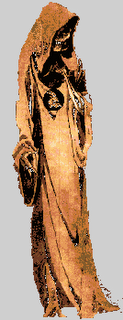If you've ever considered reading the essay collection Reading The Lord of the Rings: New Writings on Tolkien's Classic edited by Robert Eaglestone, my advice to you is don't ! It's not often I advise people not to read a book on this Blog, but this book about which I wrote in my Why Do We Read? post two weeks ago. (For some obscure reason, the book is titled Reading The Lord of the Rings: New Writings on Tolkien's Trilogy in the US - which makes me mad, because Tolkien's LotR is NOT a trilogy - it's one very long book that was published in three parts at the decision of the publisher, NOT the author - but that's another rant entirely !)
So this is the book in which Barry Atkins, writing about Lord of the Rings computer games, quoted Jay Bolter [in Writing Spaces (1991)] comment that Losing oneself in a fictional world is the goal of the naive reader or one who reads as entertainment. [p. 11 quoted p.152, Eaglestone] Which would be a bad way to start a book, but Atkins' essay is one of the last in the book - and one of the last I read (although I didn't read the essays in order). The book's project was to produce "a better Tolkien criticism", as outlined by respected Tolkien scholar Michael Drout in his introductory essay, which I read last - what, you thought I'd read it first ? That would be obvious and boring ! Besides, it *looked* intimidating - although fortunately it was an easier read than I'd imagined.
Anyway, Drout suggests that Tolkien scholars have missed a number of opportunities because they have failed to engage with literary theory. Drout notes that just as there's a division in Tolkien scholarship between those scholars who engage in "Tolkien Studies" (ie. scholarly studies of Tolkien the author and his literary works) and those who engage in "Middle-earth Studies" (to use the term coined by John Ellison and Patricia Reynolds for scholarly studies of Tolkien's invented languages, worlds, creatures, histories, etc.), so there's also a division between Tolkien scholarship and mainstream literary (and cultural) studies. Drout implies that Tolkien scholarship of both kinds is stuck in a muddy backwater, allowing literary theorists in the mainstream to ignore Tolkien scholarship, and vice versa.
So he pleads for Tolkien scholars to use theoretical tools from literary and cultural studies in order to discuss Tolkien's work, and in this book they do just that, with the result that this book is aimed very squarely at academic readers, not ordinary Tolkien fans. Even for a reader equipped with some understanding of literary theory and its jargon (I did an English degree after all), some of the essays in this book are hard work - and very frustrating. To give you just one example, Jennifer Neville's essay, "Women", to which I turned first, having written my own paper ("The Influence of Tolkien and The Lord of the Rings on Women Fantasy Authors" (Tolkien: Influenced and Influencing, Proceedings of the 17th Tolkien Society Seminar, 2005) that included a discussion of Tolkien's representation of women in The Lord of the Rings, assumes that the reader is familiar with Beowulf, and with Anglo-Saxon literature and scholarship. Now whilst I have read Seamus Heaney's interpretation of Beowulf, and even L. A. Donovan's essay, "The Valkyrie reflex in J. R. R. Tolkien's The Lord of the Rings: Galadriel, Shelob, Éowyn and Arwen" (both of which Neville references), the many other books and essays to which Neville refers are completely unknown to me, meaning that I struggled to follow her arguments.
This didn't bode well for my reading of the other 11 essays in this book and, indeed, most of them left me frustrated, if not outright hopping mad, like Atkins' did ! Therefore I would not recommend this book to "ordinary" Tolkien fans unless they have access to a well-stocked academic library; literary theorists, on the other hand, will probably laud this book as a breakthrough in Tolkien criticism.
* * * * * *
On a happier note, I've acquired another reviewing job. This is for Write Away a book review resource for teachers and librarians in the UK. They'll shortly be upgrading/refurbishing their website and as a consequence are taking on more reviewers, and I just happened to hear about it and volunteered, and was accepted with alacrity. Reviews are about 300 words and I'll be reviewing 2 or 3 fantasy books a month - which will mean my library TBR pile will go down ! One of the first books I'll be receiving from them will be Terry Pratchett's Wintersmith, which is officially published in October. When I read that bit of news, I did the Dance of Reviewing Joy !


